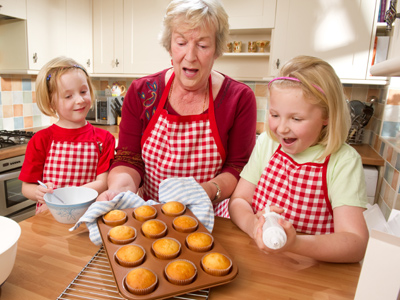
Ask the AI Tutor
Need help with Standard English 01? Ask our AI Tutor!
AI Tutor - Lucy
Connecting with Tutor...
Please wait while we establish connection

You would say or write "They did the cooking". You would never, never, never say or write "They done the cooking"!
Standard English 01
Standard English helps your writing sound clear and correct. Learn when to use formal choices, avoid slang, and pick precise prepositions in speeches, essays, and exams.
1 .
Select the word(s) that make the sentence correct.
They ..... the cooking while he ..... the cleaning.
They ..... the cooking while he ..... the cleaning.
did, did
did, done
done, did
done, done
Use "done" when you want to say that something is finished: "the dishes had been done", "her shift was done"
2 .
Select the word(s) that make the sentence correct.
I would ..... made the cake if you ..... already done so.
I would ..... made the cake if you ..... already done so.
have, had of
have, hadn't
of, had have
of, had'nt
"Hadn't" is a contraction of "had not"
3 .
Select the word(s) that make the sentence correct.
I mightn't ..... arrived today if I hadn't booked my ticket.
I mightn't ..... arrived today if I hadn't booked my ticket.
have
never
not
of
"I mightn't have" is rather a mouthful!
4 .
Select the word(s) that make the sentence correct.
He should ..... ..... his work by midday but he was late.
He should ..... ..... his work by midday but he was late.
have did
have done
of did
of done
He does, he did, he has done, he had done, he will do!
5 .
Select the word(s) that make the sentence correct.
She ..... her work early but she ..... her piano practice late.
She ..... her work early but she ..... her piano practice late.
did, did
did, done
done, did
done, done
Never "she done"!
6 .
Select the word(s) that make the sentence correct.
The boys are asking for ..... books as ..... ready to read.
The boys are asking for ..... books as ..... ready to read.
their, their
their, they're
they, they're
they're, their
"They're" is a contraction of "they are". "Their" means belonging to them. We use "there" in sentences such as "I would like to go there"
7 .
Select the word(s) that make the sentence correct.
He only ..... his homework this morning.
He only ..... his homework this morning.
did
doing
done
will do
"He only done his homework" would not be Standard English
8 .
Select the word(s) that make the sentence correct.
Mum would ..... ..... the shopping if she ..... ..... time.
Mum would ..... ..... the shopping if she ..... ..... time.
have done, had had
have done, had of had
of done, had had
of done, had of had
Always use "would have", NEVER "would of"! When people make the mistake of writing "would of", they are actually thinking of the contraction "would've", which is short for "would have", of course!
9 .
Select the word(s) that make the sentence correct.
I could ..... written to him if I ...... ..... enough time.
I could ..... written to him if I ...... ..... enough time.
have, had had
have, had of had
of, had had
of, Had've had
Never, never, never use "had of had" - it is always wrong!
10 .
Select the word(s) that make the sentence correct.
We couldn’t ..... finished the work without you.
We couldn’t ..... finished the work without you.
had
have
not have
of
Always use "couldn't have", NEVER "couldn't of"! When someone writes "couldn't of", they are trying to reproduce the sound of someone saying "couldn't've" (a double contraction of "could not have"), which is not Standard English in writing, even though you might hear people say it!
**Unlimited Quizzes Await You! 🚀**
Hey there, quiz champ! 🌟 You've already tackled today's free questions.
Ready for more?
Ready for more?
🔓 Unlock UNLIMITED Quizzes and challenge yourself every day. But that's
not all...
not all...
🔥 As a Subscriber you can join our thrilling "Daily Streak" against other
quizzers. Try to win a coveted spot on our Hall of Fame Page.
quizzers. Try to win a coveted spot on our Hall of Fame Page.
Don't miss out! Join us now and keep the fun rolling. 🎉
**Unlimited Quizzes Await You! 🚀**
Hey there, quiz champ! 🌟 You've already tackled today's free questions. Ready for more?
🔓 Unlock UNLIMITED Quizzes and challenge yourself every day. But that's not all...
🔥 As a Subscriber you can join our thrilling "Daily Streak" against other quizzers. Try to win a coveted spot on our Hall of Fame Page.
Don't miss out! Join us now and keep the fun rolling. 🎉






